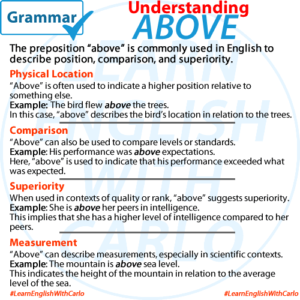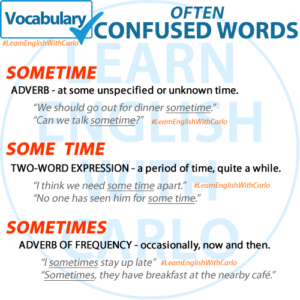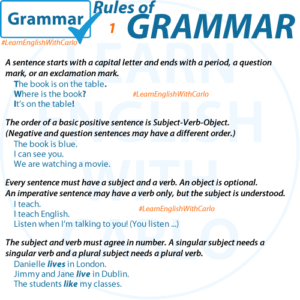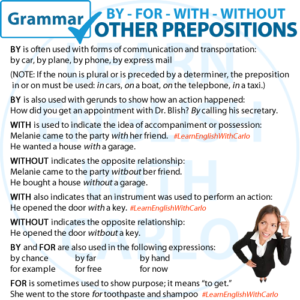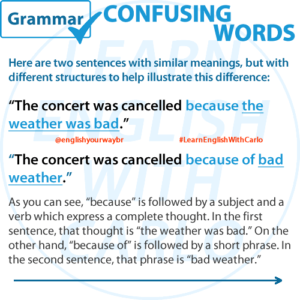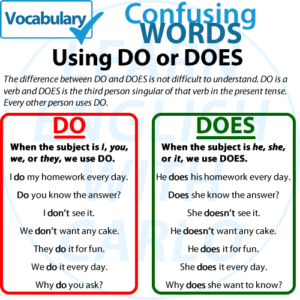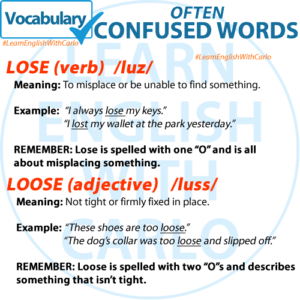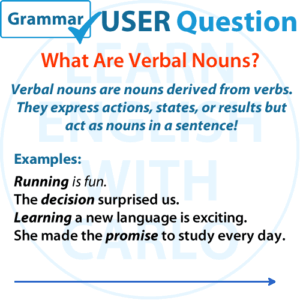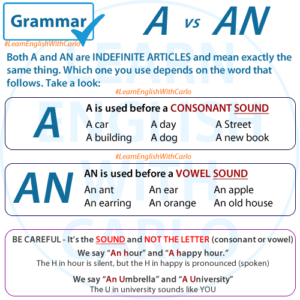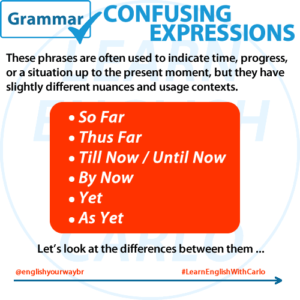The preposition “above” is commonly used in English to describe position, comparison, and superiority. This post will explore its various uses and provide examples to help you understand how to use “above” correctly. 1. Physical Location “Above” is often used to indicate a higher position relative to something else. 2. Comparison “Above” can also be …
Category: INSTAGRAM
Images I've posted to Instagram
Permanent link to this article: https://englishyourway.com.br/understanding-above/
Dec 25
Sometime, Sometimes and Some Time
These three words are often confused. So, here’s an explanation of the differences between “sometime,” “sometimes,” and “some time”: 1. Sometime: 2. Sometimes: 3. Some time: Usage Tips: Examples: Understanding these differences will help you use these words correctly in various contexts. Practice using them in sentences with the QUIZ below!
Permanent link to this article: https://englishyourway.com.br/sometime-sometimes-and-some-time/
Dec 21
Essential English Grammar Rules for ESL Learners
Mastering English grammar helps you communicate clearly and naturally. Here’s a guide to some fundamental rules, complete with examples and exceptions to be aware of. 1. Indefinite Articles (A/An) 2. Countable and Uncountable Nouns with Quantifiers 3. Possessive Form with Apostrophes 4. Active vs. Passive Voice 5. Contractions: ‘He’d’, ‘They’d’, and More 6. Proper Nouns …
Permanent link to this article: https://englishyourway.com.br/essential-english-grammar-rules-for-esl-learners/
Dec 19
OTHER PREPOSITIONS
By is often used with forms of communication and transportation:by car, by plane, by phone, by express mail (‘Note: If the noun is plural or is preceded by a determiner, the preposition in or on must be used: in cars, on a boat, on tbe telepbone, in a taxi.) By is also used with gerunds …
Permanent link to this article: https://englishyourway.com.br/other-prepositions/
Dec 18
“Because” vs. “Because of”
What’s the difference between “because” and “because of”? In most cases, “because” is followed by a subject and a verb, and “because of” is typically followed by a single word or phrase. Here are two sentences with similar meanings, but with different structures to help illustrate this difference: “The concert was canceled because the weather …
Permanent link to this article: https://englishyourway.com.br/because-vs-because-of/
Dec 16
CONFUSING WORDS – DO vs. DOES
The difference between DO and DOES is not difficult to understand.DO is a verb and DOES is the third person singular of that verb in the present tense. Every other person in the conjugation uses DO. When the subject is I, you, we, or they, we use DO. I do my homework every day.Do you …
Permanent link to this article: https://englishyourway.com.br/confusing-words-do-vs-does/
Permanent link to this article: https://englishyourway.com.br/confusing-words-lose-vs-loose/
Dec 12
GRAMMAR – Verbal Nouns
What Are Verbal Nouns and How Are They Constructed? If you’ve ever encountered words like running, development, or decision, you’ve seen verbal nouns in action! Verbal nouns are a fascinating aspect of English grammar, as they combine the essence of an action (from verbs) with the grammatical function of a noun. Let’s dive into what …
Permanent link to this article: https://englishyourway.com.br/grammar-verbal-nouns/
Dec 11
A vs. AN: Indefinite Articles
Both A and AN are indefinite articles in English, and they mean exactly the same thing. They are used before singular, countable nouns when you are not referring to a specific item. However, the choice between A and AN depends entirely on the sound of the word that follows—not necessarily the first letter of that …
Permanent link to this article: https://englishyourway.com.br/a-vs-an-indefinite-articles/
Dec 09
Confusing Expressions
So far, thus far, till now, until now, by now, yet, as yet These phrases are often used to indicate time, progress, or a situation up to the present moment, but they have slightly different nuances and usage contexts. 1. So Far 2. Thus Far 3. Till Now / Until Now 4. By Now 5. …
Permanent link to this article: https://englishyourway.com.br/differences-between-so-far-thus-far-till-now-until-now-by-now-yet-as-yet/

